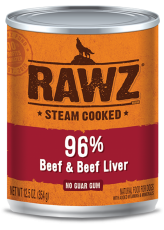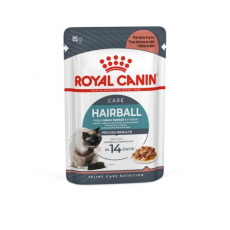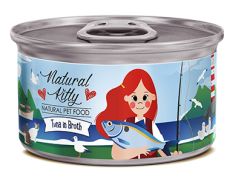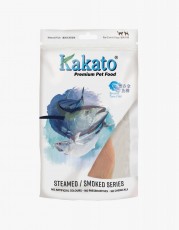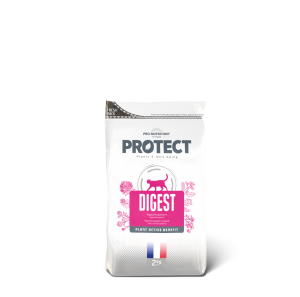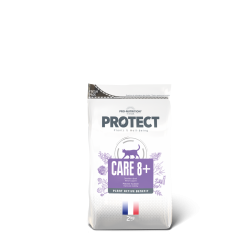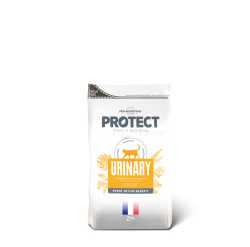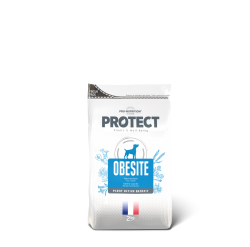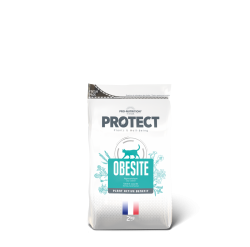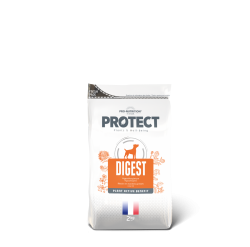 Loading... Please wait...
Loading... Please wait...Categories
Our Newsletter
- Home
- Cats' Dry Food
- PROTECT
- PROTECT Digest Dry Cat Food 2kg
- Home
- Shop by Brand
- P-T
- Protect
- PROTECT Digest Dry Cat Food 2kg
Product Description
Digest
HYPOALLERGENIC – SKIN REINFORCEMENT
- Selected animal proteins of duck, sardine and white fishes (free from pork, chicken and beef), to reduce food intolerances
- Borage seeds, biotin, chelated zinc for a healthy skin
- Artichoke, turmeric, bushwillow (combretum), boldo, rosemary for an optimal digestive comfort
Dehydrated duck proteins (13% min.). Dehulled oats. Duck fat. Dehydrated sardine proteins (10% min.). Peas. Rice. Apple fibres. Tapioca. Linseed. Potato starch. Animal protein hydrolysates. Potato proteins. Wild white fish protein hydrolysates (including cod, anglerfish). Borage seeds. Brewer's yeast. Fish autolysates (0.6%). Clay. Psyllium fibres. Fish oil. Ammonium chloride. Methionine. Sea salt. Fructo-oligosaccharides. Artichoke. Tumeric. Bushwillow. Boldo. Rosemary. Potassium chloride. Taurine. Yucca. Rosemary extracts. Vitamins and trace elements.
Selected and limited protein sources: dehydrated sardine proteins, dehydrated duck proteins, wild white fish protein hydrolysates (including cod, anglerfish), potato proteins (without dehydrated chicken, pork, beef protein). Selected carbohydrate sources: oats, rice, tapioca, potato starch. Sources of omega 6 and 3: borage seeds, duck fat, linseed, fish oil. High level of linoleic acid (LA) and of sum of eicosapentaenoic acid (EPA) and docosahexaenoic acid (DHA): sum of EPA + DHA = 0.33%. High energy density (4070 kcal/kg), high concentrations of essential nutrients and highly digestible ingredients.
Content by volume
Crude protein 29 %. Crude fat 19 %. Crude fibre 2.5 %. Inorganic matter 7.5 %. Metabolisable energy 4,070 kcal/kg. Calcium 1.25 %. Phosphorus 1 %. Sodium 0.5 %. Potassium 0.7 %. Magnesium 0.11 %. Linoleic acid 20 g/kg. Alpha-linolenic acid 10 g/kg. EPA + DHA 3.3 g/kg. Lysin 16.5 g/kg. Methionine 9.4 g/kg. Taurine 1,800 mg/kg. Copper 19 mg/kg. Zinc 134 mg/kg (including Zinc chelate 32 mg/kg). Manganese 85 mg/kg. Iodine 2.3 mg/kg. Selenium 0.5 mg/kg (of which Organic selenium 0.06 mg/kg). Vitamin A 17,600 UI. Vitamin D3 1,600 UI. Vitamin E 300 UI. Vitamin B1 96 mg/kg. Vitamin B2 4 mg/kg. Pantothenic acid 13.9 mg/kg. Vitamin B6 4.8 mg/kg. Vitamin B12 0.024 mg/kg. Vitamin PP 52 mg/kg. Biotin 1.6 mg/kg. Folic acid 1 mg/kg. Choline chloride 3,525 mg/kg.
Instructions
Serve the food gradually during the transition from the pet's previous food, straight from the bag or rehydrated according to the rationing table printed on the bag. Daily amounts need to be adjusted according to the animal's breed, weight and activity. Provide plenty of drinking water. To obtain the best results, ensure that the recommended daily quantities are complied with and do not give the animal any other food. It is recommended that a veterinarian’s opinion be sought before use and before extending the period of use.
Recommended length of time (in the case of food intolerances): 3 to 8 weeks: if signs of intolerance disappear this feed can be used initially up to one year. Recommended length of time (in the case of dermatosis): Initially up to 2 months.
Storage precautions: to preserve the food's qualities, store in a cool, dark and dry place.
Customers Who Viewed This Product Also Viewed
-
$250.00$225.00 -
$250.00$225.00 -
$225.00$202.50 -
$250.00$225.00



